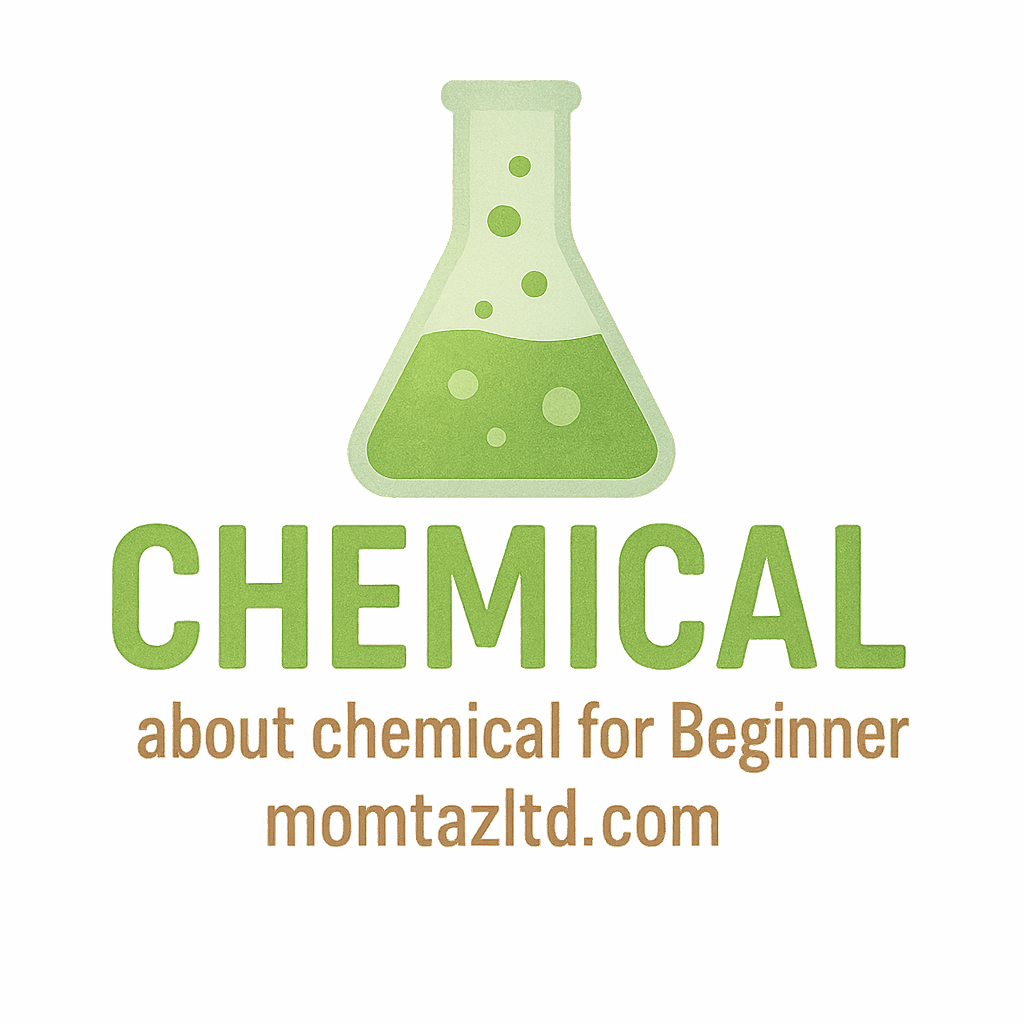Introduction
The manufacturing industry is the backbone of the global economy. It is responsible for producing everything from the cars we drive to the smartphones we use daily. Behind every great manufacturing process is a key ingredient: industrial chemicals. These chemicals are essential for a wide range of processes, from producing metals and plastics to synthesizing fertilizers and pharmaceuticals.
In this article, we’ll dive into 10 industrial chemicals that play a crucial role in powering modern manufacturing. These chemicals are indispensable for everything from energy production to consumer goods. So, let’s explore how these chemicals make modern manufacturing possible!
What Are Industrial Chemicals?
Industrial chemicals are substances used in large-scale industrial processes to create products or materials. They range from simple acids and bases to complex compounds used in specialized manufacturing. These chemicals are typically produced in large quantities and serve as the foundation for many sectors, including automotive, pharmaceuticals, construction, food processing, and more.
The importance of these chemicals cannot be overstated. They enable efficient production processes, help in the synthesis of critical materials, and contribute to the development of new technologies.
The Role of Industrial Chemicals in Manufacturing
Industrial chemicals are involved in almost every step of the manufacturing process. Here’s why they’re so important:
- Catalysts for Reactions: Many manufacturing processes require chemical reactions that would not occur naturally or would take too long. Industrial chemicals, like catalysts, speed up these processes.
- Raw Materials: Chemicals are often used as raw materials to produce more complex substances. For example, the production of plastics involves the polymerization of various chemicals.
- Cleaning and Purification: Chemicals are used to clean machinery, remove impurities, and purify materials in industries like oil refining and metal production.
- Enhancing Properties: Some chemicals are used to enhance the properties of a material, such as improving the strength, durability, or resistance to corrosion.
Now, let’s explore the 10 industrial chemicals that are crucial to modern manufacturing.
1. Sulfuric Acid
Sulfuric acid is one of the most widely used industrial chemicals, playing a vital role in the manufacturing of fertilizers, cleaning agents, and in petroleum refining.
- Uses: It is a primary ingredient in the production of phosphate fertilizers and is also used in metal processing and wastewater treatment.
- Why It’s Important: Sulfuric acid is a powerful dehydrating agent and an effective solvent, making it essential in industries that require chemical reactions at a large scale.
For more on industrial chemicals, visit Momtaz Ltd – Industrial Chemicals.
2. Sodium Hydroxide (Lye)
Sodium hydroxide, commonly known as lye or caustic soda, is a highly versatile chemical used in many industrial applications.
- Uses: It is used in the production of soaps, detergents, and paper products. It’s also a key ingredient in the petroleum industry and in the production of biodiesel.
- Why It’s Important: Sodium hydroxide is a strong base and is effective in breaking down organic materials, making it an essential chemical in cleaning and manufacturing processes.
For more about chemical applications in industry, check out Momtaz Ltd – Chemical Basics.
3. Hydrochloric Acid
Hydrochloric acid is another strong acid that is used in various manufacturing processes, especially in cleaning and metal processing.
- Uses: It is used to remove rust from steel, as well as in the production of PVC plastics and food products like corn syrup.
- Why It’s Important: Its ability to dissolve metal oxides makes it a go-to solution for metal cleaning, and it is also essential for the production of various chemicals.
4. Ammonia
Ammonia plays a pivotal role in the production of fertilizers, which are vital for the agricultural industry.
- Uses: Ammonia is used to make fertilizers, cleaning products, and plastics. It is also used as a refrigerant gas in cooling systems.
- Why It’s Important: As a nitrogen source, ammonia is crucial for the synthesis of ammonium nitrate, a key ingredient in fertilizer production.
For more details on chemical safety and handling, visit Momtaz Ltd – Chemical Safety.

5. Methanol
Methanol, also known as wood alcohol, is a critical chemical used in the production of formaldehyde, antifreeze, and as a fuel in some industrial applications.
- Uses: It is primarily used in the production of plastics, paints, and solvents, and is also used in biofuels.
- Why It’s Important: Methanol’s high energy content and versatility make it a valuable resource in energy production and various manufacturing sectors.
6. Acetone
Acetone is a simple organic solvent that is widely used in the manufacturing of plastics, cosmetics, and pharmaceuticals.
- Uses: It is primarily used as a solvent for cleaning purposes and in the production of acrylic plastics and fibers.
- Why It’s Important: Acetone’s ability to dissolve many organic compounds makes it a key chemical in the cosmetic, automotive, and pharmaceutical industries.
For a deeper dive into chemical terms and their applications, visit Momtaz Ltd – Chemical Terms.
7. Phosphoric Acid
Phosphoric acid is an essential chemical in various manufacturing sectors, especially in the production of fertilizers.
- Uses: It is used to make phosphate fertilizers and is also found in food products as an additive.
- Why It’s Important: Phosphoric acid is crucial for providing phosphorous to plants and plays a role in many chemical syntheses.
8. Hydrogen Peroxide
Hydrogen peroxide is an oxidizing agent used in a variety of industrial processes, particularly in textile and paper bleaching.
- Uses: It is used as a disinfectant, bleach, and in the production of chemicals like peracetic acid.
- Why It’s Important: Its ability to break down organic material and disinfect makes it vital in manufacturing sectors that require cleanliness and sanitization.
9. Nitric Acid
Nitric acid is used in the production of fertilizers, explosives, and in metal refining.
- Uses: It is a key ingredient in the production of ammonium nitrate for fertilizers and explosives, and it is used in the etching and refining of metals.
- Why It’s Important: Nitric acid’s ability to oxidize metals makes it essential in manufacturing processes that require precise chemical reactions.
10. Ethylene Glycol
Ethylene glycol is a key chemical in the production of antifreeze and in the manufacture of polyester fibers.
- Uses: It is used in antifreeze formulations, as a solvent, and in the production of plastics like polyethylene terephthalate (PET).
- Why It’s Important: Its low freezing point and ability to serve as a coolant make it indispensable in automotive industries, while its use in PET production is vital for the textile and packaging industries.
How Do These Chemicals Impact the Manufacturing Process?
These chemicals not only contribute to product development but also ensure the efficiency, quality, and safety of manufacturing processes. They act as catalysts, solvents, or raw materials that enable large-scale production while maintaining the desired characteristics of the final product.
Safety Considerations When Handling Industrial Chemicals
Working with industrial chemicals requires extreme caution. Proper handling, storage, and disposal procedures must be followed to avoid accidents and environmental damage. Safety regulations and guidelines must be adhered to, and personal protective equipment (PPE) should always be used.
Future Trends in Industrial Chemical Usage
As industries evolve, so too does the role of chemicals in manufacturing. Innovations such as green chemistry, sustainable manufacturing practices, and biodegradable chemicals are shaping the future of industrial chemical use. These advancements aim to reduce environmental impact and improve safety and efficiency in manufacturing.
Conclusion
Industrial chemicals are the unsung heroes of modern manufacturing. They are essential for producing everything from fertilizers to electronics, and without them, our world would be very different. Understanding the role these chemicals play not only highlights their importance but also emphasizes the need for safe handling and ongoing innovation in their use.
FAQs
- What are industrial chemicals?
Industrial chemicals are substances used in manufacturing processes to create various products, from basic materials to specialized chemicals. - Why are industrial chemicals important for manufacturing?
They help in the production, cleaning, enhancement, and synthesis of materials that are essential for various industries. - How are industrial chemicals used in metal processing?
Chemicals like sulfuric acid and hydrochloric acid are used to clean and etch metals, removing rust and preparing them for further processing. - What are the safety precautions for handling industrial chemicals?
Always use PPE, follow safety guidelines, and ensure proper storage and disposal methods to avoid accidents and environmental harm. - Can industrial chemicals be hazardous to health?
Yes, many industrial chemicals can be hazardous if not handled properly. It’s essential to follow safety procedures to minimize risk. - What industries rely heavily on industrial chemicals?
Industries such as automotive, pharmaceuticals, agriculture, construction, and electronics rely heavily on industrial chemicals for their production processes. - What are the future trends in industrial chemical usage?
The future includes a shift toward green chemistry, more sustainable chemicals, and innovations to reduce environmental impact.


